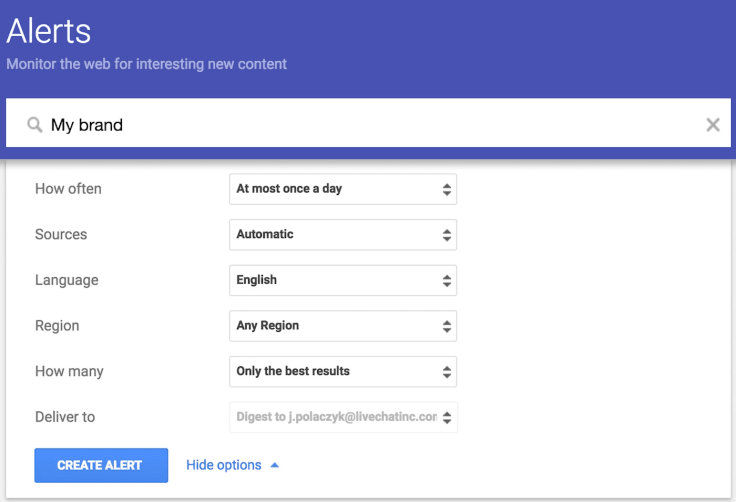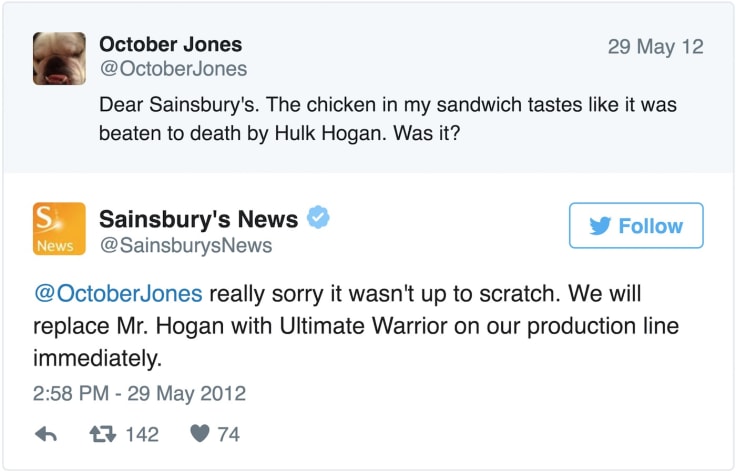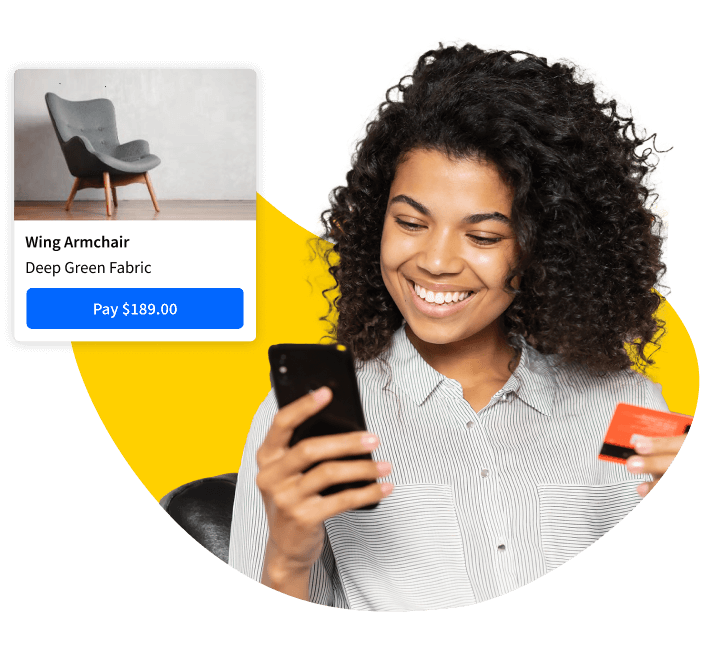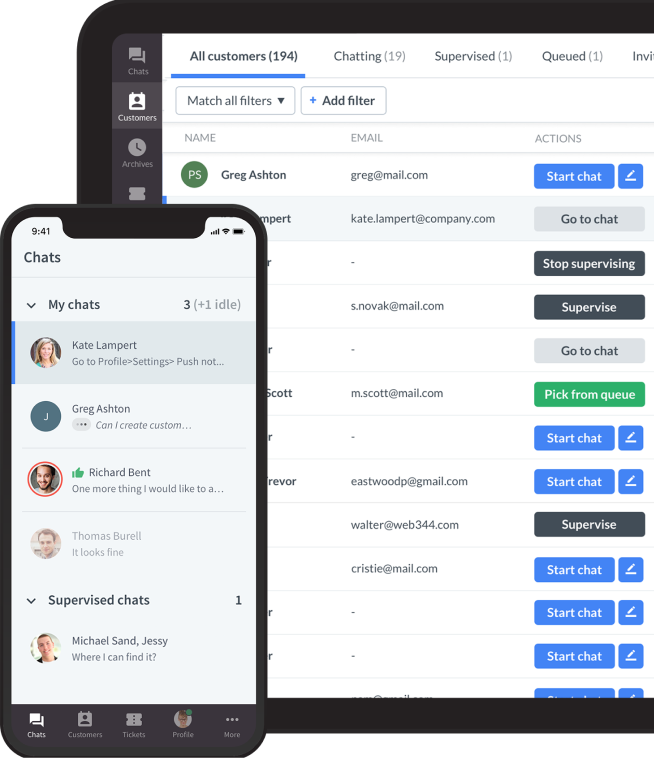Showing top 0 results 0 results found
Showing top 0 results 0 results found

If you’ve read my latest post about lion customer taming, you may think: OK, I’ve seen a post about dealing with customer complaints, but there was nothing about dealing with complaints via social media!
That’s because dealing with negative comments on social media is different than dealing with “regular” complaints, received by phone, chat or email.
There is this one reason: it’s too easy to turn a social media complaint into a disaster.
Why should I care about social media complaints?
Social media is public. Every time someone writes badly about your product or services, the whole social media audience can see it.
People will judge you based on several criteria: how quickly did you respond, what was your reaction, what was your customer’s reaction and how did the whole thing end.
Social media is all about a quick reaction and swift response. People present on Facebook, Twitter or Instagram literally live there and are able to post in the morning, during breakfast, after dinner or in the middle of the night.
If you decide to have a business profile, you need to be ready to do the same. You might think that no one will notice one negative review, but people definitely will! And should you not react, they will draw a conclusion, that you don’t care about your customers and your PR.
Is my company prepared to handle negative comments on social media?
If you’re wondering what to start with, here’s the main advice: make sure that there is one person responsible for handling comments on social media sites.
I highly recommend choosing only one person, because if there are more people responsible for one task, it might turn out that they skipped an unanswered comment because they thought that the other person would handle it!
Second thing: make sure that your social media specialist knows social media and knows how they are supposed to respond.
How am I supposed to respond to social media complaints if I don’t see them?
It’s easy to respond to a complaint that was sent directly to your email inbox, right? In case of social media it’s not that easy!
If you’re lucky enough, people will tag your brand in their posts and you will get notifications about it. Things get more complicated when someone is sharing bad word of mouth about your services and you can’t respond to it because you don’t see it.
That’s why you should befriend Google Alerts.

Enter your brand’s name (you can choose more than one keyword alert) and optimize your settings.

You can get your alerts immediately when your keyword was mentioned, once a day or once a week. You can choose the source (e.g. blogs, videos, news), language and region.
I would recommend to set it up so you get notifications about all results from all languages and regions, because you want to be sure that you did not miss anything. You can always change the settings later on.
How quickly should I respond?
You should respond as soon as you have received a negative comment. Try to aim for responding within 15 minutes to make a good impression, but if you’re not able to do that, try to respond in an hour.
According to Convince and Convert, 42% of your customers will expect a 60 minutes response time and 32% of them expect a response within 30 minutes!
Among those respondents who have ever attempted to contact a brand, product, or company through social media for customer support, 57% expect the same response time at night and on weekends as during normal business hours.
The faster you respond, the better you’ll look in the eyes of the social media community. There’s no mercy! To speed up the writing process you can use blog writing tools like chat GTP, blog writer, or other AI LLM applications.

What should be my reaction?
Actually, you can do everything you want. You can shout, swear, break stuff or hide in a closet and cry.
There’s only one rule: you need to respond calmly and politely.
We all know that it’s hard not to take it personal when someone leaves a bad comment or a review. It gets even harder when you’ve been doing your best to satisfy your customers and make your business awesome.
Of course, you won’t be able to satisfy everyone, but there’s one thing you need to remember. Among negative comments, you will find both: your dissatisfied customers and Internet trolls. And while you should try to make things right with your customers, you need to get rid of unwanted commenters as soon as possible.
You may ask: but why would someone troll me?
It’s simple: because there are always malicious creatures that feed on your anger and frustration. If you let yourself vent in public, you will be judged by your behavior. You might find yourself arguing with other people who will stand in the trolls’ defense and that’s the last thing you want!
So, whether you’re talking with an angry customer or troll, make sure you’re doing the following:
- thank them for their opinion (try not to be formal, short “thanks for reaching out to us” should be fine),
- apologize for inconvenience (“sorry to hear that you’re having problems with our product / you didn’t like our services”),
- encourage them to send you a private message.
The last thing is very important: whatever happens, you want the unsatisfied customer to send you a private message. Is it on the messenger, is it via live chat - you don't want your followers to eat popcorn and have fun while reading your argument.
Pro tip: I don't recommend asking your customer to send you an email - email communication takes ages and might enrage your customer even more. Instead of that, send them the direct chat link and start chatting right away, on private. And if you don't have live chat, you can test our chat tool for free.
Remember not to discuss your problems in public; deal with it behind curtains, unless you're as sharp as Sainsbury’s!

Should I remove negative comments?
No.
I know, you might be tempted to remove them, but you should never, ever do that.
First of all, if you remove a real comment from an upset customer, you can be sure they will come back: louder, angrier and more frustrated. The second thing is that negative comments show that you’re a true, honest brand.
Think about it this way: customers enter your profile and see only good opinions which could make them think that you’ve made all these comments up. They probably start digging for other opinions on forums and review sites. Sooner or later they’ll find negative feedback and they might choose your competitor because they feel you’re not honest.
There is one case when you can remove a comment and feel good about it: when you’re 200% sure you’ve got a comment from a troll. If someone abuses you or writes irrational things about your brand, delete it!
How should I solve customers’ problems?
Once you get in touch with your customer in private, handle a complaint the normal way:
- thank a customer for sharing their opinion;
- try to use “thank you for taking the time to write / call us,”
- briefly apologize, a short “I’m sorry” should do the trick,
- try to explain what happened: be clear, precise and don’t try to excuse yourself if you’ve made a mistake,
- explain what you are going to do and when you’re going to get back to them.
Don’t forget to follow up! If customers take their time to post about you once, they will post again if they are dissatisfied with the solution/fix.
A great way to gain a good word of mouth is to make an extra mile for such customers and offer them a small gift or a discount. I know, it might sound like bribery (in fact, that’s exactly what it is), but if it brings you good word of mouth, hey, then it’s worth it!
What happens on social media stays on Google forever
Social media presence is not only about posting interesting links or pictures on your profiles, it’s a regular customer service channel. And it’s as important as phone, chat or email. Do you know that, according to Gartner, failure to respond via social channels can lead to a 15% increase in the churn rate for existing customers?
It means that if you don’t follow the above advice, you might harm your brand’s reputation!
So, to sum it up:
Once you find a negative post, tweet or comment, try to respond as soon as possible because short response times are a key to success.
Don’t be afraid to remove hateful, unreasonable comments but don’t delete real ones. You might be tempted to remove them, but it’s a bad strategy - a company without bad comments or reviews is suspicious and makes people search even more for bad information.
It may seem like a stressing and ungrateful job, but there are several good things about it. Did you know that 42% of people will tell their friends about a good customer experience on social media?
And here’s another interesting quote that Olga posted in her post about word of mouth:
92% of respondents reported that a positive recommendation from a friend has the biggest influence on whether they buy a product.
This means that you shouldn’t think about dealing with complaints on social media as a nasty obligation but more as an opportunity.
Opportunity to turn your customers’ bad experience into a good one and to change complaints into compliments.
Gary Vaynerchuk said:
You have to be no less than a customer concierge, doing everything you can to make every one of your customers feel acknowledged, appreciated, and heard. Social media gives businesses the tools to do that for the first time in a scalable way.
Make sure to take advantage of this opportunity!







Comments